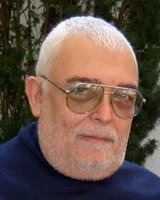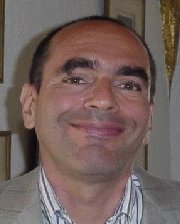 by Frank Luger
by Frank Luger
There is no country quite like Switzerland, and no people even
remotely resembling the Swiss. This statement is not intended as
promotional propaganda for the tourism industry. It is based on
personal experience, when in late 1966, after breaking through
the Iron Curtain, I had to find my way from an Italian refugee
camp to eventual political asylum in West-Germany; and so,
perforce, see and feel Switzerland from the inside, rather than
from the comfortable outsider stance of a well-to-do tourist.
Still, it was a nice experience. Since then, I was there a few
more times; and the same good impressions remained, throughout
the past 35 years or so.
Flatten the mountains out with a giant rolling-pin, and the
country would expand to three or four times its size. Crumpled as
it is, altitudes vary from sea-level (at Locarno) to 15,215 feet,
on the summit of the Dufourspitze, the highest peak in the Swiss
Alps. In between, you can choose your climate, from mellow
Mediterranean to frozen Arctic. Why, in the course of an
afternoon you can travel backward through the seasons, as it
were, from summer back to spring and thence to eternal winter, by
going for a ride on the steep mountain railway that ascends the
Jungfrau.
And the people who inhabit this country are just as varied. In
the West they speak French and are Gallic in ethnicity, i.e.
features, character, temperament, and culture. The conductor on
the eastbound train from Geneva or Lausanne starts by saying
"Tous les billets, s'il
vous plaît!" when he asks for the tickets; by
the time the train reaches Berne, he has switched to German and
calls "Alle Billete, bitte!"
For we have meanwhile passed the language frontier and entered
the region where German dialects are spoken -- a slightly
different one in each region. The "frontier
zone" is only a few miles wide, and it remains a
mystery why, despite many generations of federal government and
intermarriage, there has been so little blending and merging of
the various ethnic elements, all over the country.
But that is just another of the characteristic features of
Switzerland. The twenty-five Cantons or counties making up the
Helvetic Confederation enjoy an amazing amount of autonomy; and
they are so jealous of their independence within the Swiss family
that some of them still officially call themselves republics! Far
from attempting to unify the population, the Federal Government
takes pains to preserve the natural demographic and ethnic order
and thus prevent the creation of discontented -- and therefore
troublesome -- minorities. This
'formula' has worked
well-nigh perfectly for several centuries.
Right across the country from East to West runs the great
Alpine barrier, culminating in the St-Gotthard massif. Strangely
enough, the St-Gotthard, though traversed by only a single
railway tunnel and a single road, is far less effective as a
language barrier than the little stream that divides
German-speaking from French-speaking Switzerland. The reason for
this is mainly climatic: the Ticino is far sunnier and warmer
than the regions north of the Alps. In springtime you may leave
Zürich by train in cold fog or rain, run into snow as the
train ascends towards Göschenen, the northern end of the
nine-mile St-Gotthard tunnel, and emerge ten minutes later at
Airolo into a world of bright blue skies and warm, golden
sunshine. The urge towards the South is therefore quite natural.
Having reached retirement age, thousands of Swiss from the North
buy a plot of land in the sunny Ticino and build a house or
cottage in which to spend the evening of their years. They take
their language and their native habits with them, thus
adulterating the true Italianatà of
the Ticino, where sunshine and the lovely scenery are practically
the only economic assets of the
"natives." This
"colonization" has been going on
for generations, and in some parishes in the Ticino today the
German-speaking now outnumber the Italian-speaking original
inhabitants manifold.
Of late, too, wealthy Germans have been settling in the Ticino in
ever-increasing numbers. Ever more advertisements offering
"Building site for sale" and
"House for sale in the Ticino"
have been appearing in German newspapers as the relatively poor
Ticinesi dispose of their coveted though unproductive property at
good prices. The attractions of the Ticino are obvious: in
addition to the mild climate and beautiful scenery, taxes are
comparatively low, and the geographical location is fairly safe,
even in the event of another war. It occurred to me that maybe I,
too, would like to buy some land there one day, build a cottage,
retire to the lovely Ticino and write books. Oh, well --
daydreams"…
The Swiss feel sad as they watch this development; many of the
Ticinesi- especially those who themselves have no land to sell --
feel angry. A committee had been formed for the
"defense" of Italian-speaking
Switzerland, but there is not much that it can do. If the present
"invasion" of German-speaking
settlers, both Swiss and foreigners, plus wealthy foreigners from
other countries continues, it is possible that the Italian
language will have become the exception rather than the rule in a
few generations.
There are a great many attractions in Switzerland, from ski
'paradises' to excellent
cuisine, from the fabulous dairy products to banking advantages,
you name it; but perhaps I should stop at this point and let you
do your own explorations and discoveries at your leisure. You
will find that each place has its story to tell, its celebrities
to vaunt; but the overall effect of Switzerland is serene
tranquillity, as well as great natural beauty and colorful
lifestyles. True, in recent decades many non-European foreigners
have somewhat diluted or watered-down traditional Swiss values;
but the unique charm of the country remains nevertheless,
throughout the years. Therefore, the opening statement of this
brief article stands, despite the passage of many turbulent times
all over the World.
Read More...
Summary only...
 by Albert Frank
by Albert Frank
















